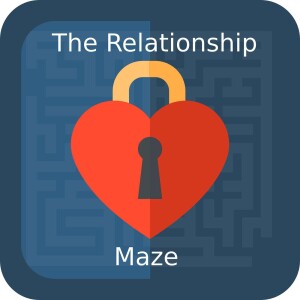
Do you get drawn into other people’s relationship struggles? Or do you draw someone in to yours?
 2022-01-31
2022-01-31
Send us a text
Do you often get drawn into other people's conflict? Do you bring in a third person to alleviate stress? In today's episode we discuss an important concept from family therapy: the notion of triangulation.
When we are in a situation of intense relational pressure, be it at work, with friends or our partner, we often bring in a third person to release some of this pressure. For example, if you are very frustrated with some of the demands or behaviours of your boss at work you may complain to a colleague about the unreasonable demands made on you. This temporarily releases the pressure and makes the situation more bearable. The same is true in your relationship with your partner.
Triangulation can be functional or positive where it resolves the problem or it can be dysfunctional when it perpetuates the problem. If the conflict with your partner continues over a long period of time and you always need a third person involved in your difficulties (a friend, a family member or your child) the situation can become quite pathological and unhelpful.
The most important triangle in our life is our relationship with our parents. It determines our future relationships. If your parents always struggled to resolve their conflict they may have triangulated you or a sibling. You become the mediator or rescuer in the family who always tries to fix other people's problems. You become the parentified child, stepping into the role of the parent. This dynamic then get carried forward into adult relationships.
In conflict situations with your partner you may unwittingly be triangulating your children or you may bring in your parents. Your child or mum for example may then step into the stress situation to mediate and sort out the problem.
In dating situations a third person may be brought into the dynamic to make you feel jealous, often destabilising your self confidence.
In couples therapy the therapist gets triangulated with both partners wanting the therapist on their side.
Triangulation happens all the time, however, if unchecked, it can have a devastating impact on the person who is brought into the dysfunctional relationship, for example children who get drawn into the war zone between their arguing or divorcing parents.
Contact us for information about individual counselling/psychotherapy, couples therapy, clinical supervision or CPD training.
Tom's website
Angela's website
Struggling with a lot of conflict and arguments in your relationship? Learn about communicating effectively and addressing common relationship problems in our Stop Arguing, Start Loving mini course.
Learn everything you always wanted to know about building and maintaining loving relationships in our comprehensive course The Relationship Maze, starting with understanding yourself in relationships to understanding your partner and understanding what makes for a successful relationship. We look at common causes of relationship problems and offer solutions. Learn how to address relationship problems and questions without breaking up.
More Episodes
 2021-06-13
2021-06-13
 2021-06-06
2021-06-06
 2021-05-31
2021-05-31
 2021-04-25
2021-04-25
Create your
podcast in
minutes
- Full-featured podcast site
- Unlimited storage and bandwidth
- Comprehensive podcast stats
- Distribute to Apple Podcasts, Spotify, and more
- Make money with your podcast
It is Free
- Privacy Policy
- Cookie Policy
- Terms of Use
- Consent Preferences
- Copyright © 2015-2024 Podbean.com




